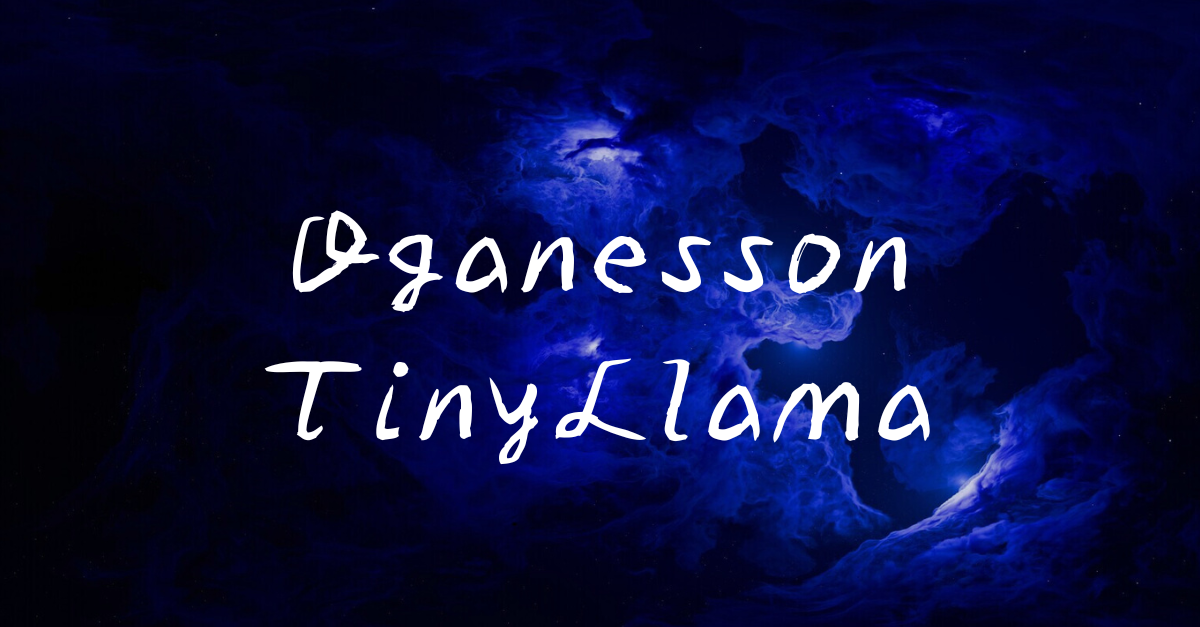|
|
--- |
|
|
library_name: transformers |
|
|
tags: |
|
|
- text-generation-inference |
|
|
- code |
|
|
- llama-3.2 |
|
|
- math |
|
|
- general-purpose |
|
|
license: llama3.2 |
|
|
language: |
|
|
- en |
|
|
base_model: |
|
|
- meta-llama/Llama-3.2-1B |
|
|
pipeline_tag: text-generation |
|
|
--- |
|
|
 |
|
|
|
|
|
# **Oganesson-TinyLlama-1.2B** |
|
|
|
|
|
> **Oganesson-TinyLlama-1.2B** is a lightweight and efficient language model built on the **LLaMA 3.2 1.2B** architecture. Fine-tuned for **general-purpose inference**, **mathematical reasoning**, and **code generation**, it’s ideal for edge devices, personal assistants, and educational applications requiring a compact yet capable model. |
|
|
|
|
|
> \[!note] |
|
|
> GGUF: [https://huggingface.co/prithivMLmods/Oganesson-TinyLlama-1.2B-GGUF](https://huggingface.co/prithivMLmods/Oganesson-TinyLlama-1.2B-GGUF) |
|
|
|
|
|
--- |
|
|
|
|
|
## **Key Features** |
|
|
|
|
|
1. **LLaMA 3.2 1.2B Core** |
|
|
Powered by the latest **TinyLLaMA (1.2B)** variant of Meta's LLaMA 3.2, offering modern instruction-following and multilingual capabilities in a very small footprint. |
|
|
|
|
|
2. **Modular Fine-Tuning** |
|
|
Trained on a handcrafted modular dataset covering general-purpose reasoning, programming problems, and mathematical challenges. |
|
|
|
|
|
3. **Mathematical Competence** |
|
|
Solves equations, explains concepts, and performs symbolic logic in algebra, geometry, and calculus—ideal for lightweight tutoring use cases. |
|
|
|
|
|
4. **Code Understanding & Generation** |
|
|
Produces clean, interpretable code in Python, JavaScript, and more. Useful for micro-agents, code assistants, and embedded development tools. |
|
|
|
|
|
5. **Versatile Output Formats** |
|
|
Handles JSON, Markdown, LaTeX, and structured data output, enabling integration into tools and platforms needing formatted results. |
|
|
|
|
|
6. **Edge-Optimized** |
|
|
At only 1.2B parameters, this model is built for **local inference**, **on-device usage**, and **battery-efficient environments**. |
|
|
|
|
|
--- |
|
|
|
|
|
## **Quickstart with Transformers** |
|
|
|
|
|
```python |
|
|
from transformers import AutoModelForCausalLM, AutoTokenizer |
|
|
|
|
|
model_name = "prithivMLmods/Oganesson-TinyLlama-1.2B" |
|
|
|
|
|
model = AutoModelForCausalLM.from_pretrained( |
|
|
model_name, |
|
|
torch_dtype="auto", |
|
|
device_map="auto" |
|
|
) |
|
|
tokenizer = AutoTokenizer.from_pretrained(model_name) |
|
|
|
|
|
prompt = "Write a Python function to compute the Fibonacci sequence." |
|
|
|
|
|
messages = [ |
|
|
{"role": "system", "content": "You are a helpful coding and math assistant."}, |
|
|
{"role": "user", "content": prompt} |
|
|
] |
|
|
|
|
|
text = tokenizer.apply_chat_template( |
|
|
messages, |
|
|
tokenize=False, |
|
|
add_generation_prompt=True |
|
|
) |
|
|
|
|
|
model_inputs = tokenizer([text], return_tensors="pt").to(model.device) |
|
|
|
|
|
generated_ids = model.generate( |
|
|
**model_inputs, |
|
|
max_new_tokens=512 |
|
|
) |
|
|
generated_ids = [ |
|
|
output_ids[len(input_ids):] for input_ids, output_ids in zip(model_inputs.input_ids, generated_ids) |
|
|
] |
|
|
|
|
|
response = tokenizer.batch_decode(generated_ids, skip_special_tokens=True)[0] |
|
|
print(response) |
|
|
``` |
|
|
|
|
|
--- |
|
|
|
|
|
## **Intended Use** |
|
|
|
|
|
* Lightweight reasoning for embedded and edge AI |
|
|
* Basic math tutoring and symbolic computation |
|
|
* Code generation and explanation for small apps |
|
|
* Technical content in Markdown, JSON, and LaTeX |
|
|
* Educational tools, personal agents, and low-power deployments |
|
|
|
|
|
--- |
|
|
|
|
|
## **Limitations** |
|
|
|
|
|
* Smaller context window than 7B+ models |
|
|
* Less suitable for abstract reasoning or creative writing |
|
|
* May require prompt engineering for complex technical queries |
|
|
* Knowledge is limited to pretraining and fine-tuning datasets |
|
|
|
|
|
--- |
|
|
|
|
|
## **References** |
|
|
|
|
|
1. [LLaMA 3 Technical Report (Meta)](https://ai.meta.com/llama/) |
|
|
2. [YaRN: Efficient Context Window Extension of Large Language Models](https://arxiv.org/pdf/2309.00071) |